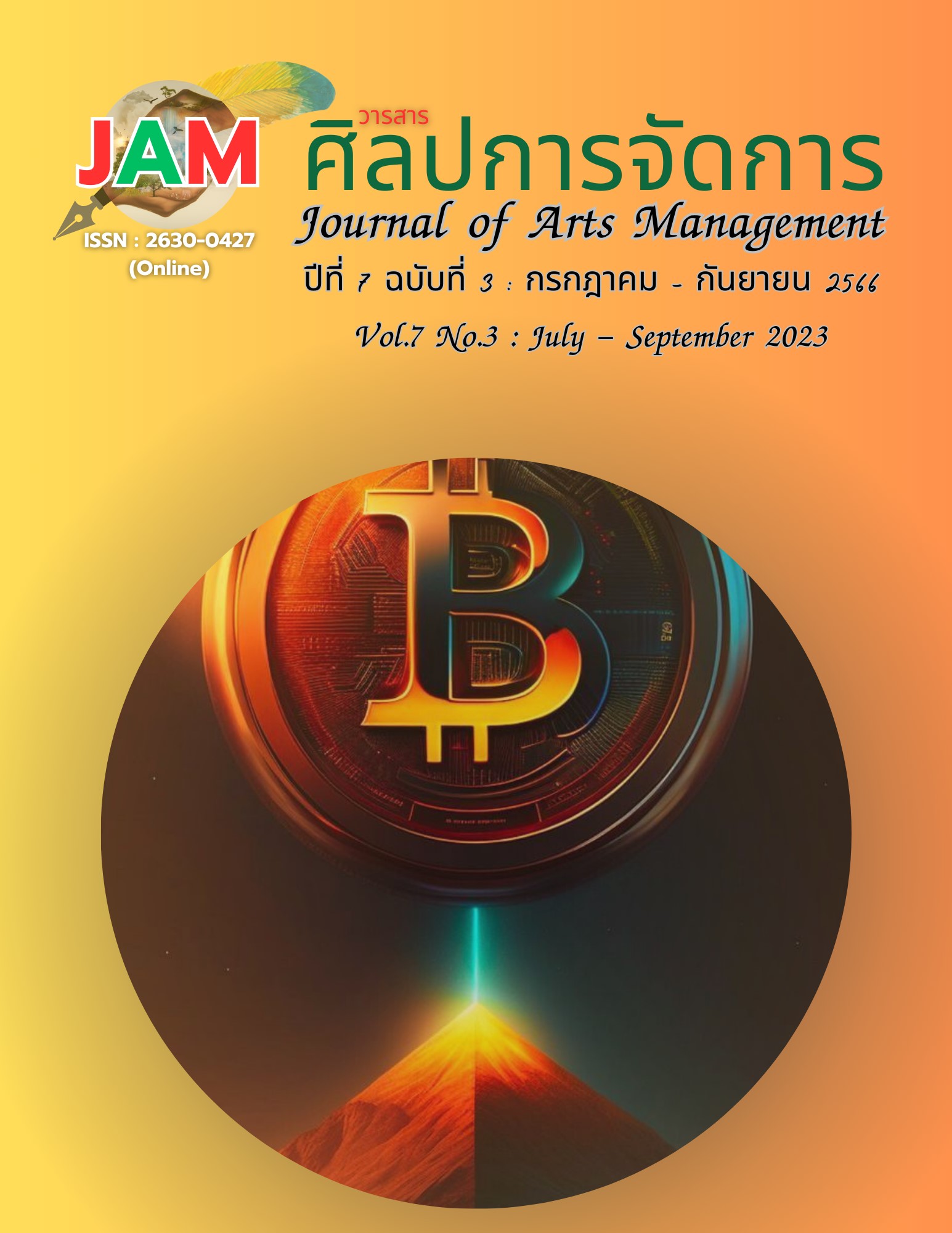The Development of Online Training Model to Enhance Instructional Management Quality of Higher Education Instructors
Main Article Content
Abstract
The objectives of this research were: 1) to study the development needs of teaching quality management among university-level instructors; and 2) to develop an online training format to enhance the teaching quality management skills of university-level instructors; and 3) to examine the use of the online training format to promote teaching quality management among university-level instructors. The sample group used in the research consists of 30 university-level instructors. The statistical analysis used for data evaluation includes percentages, means, and standard deviations. The research findings are as follows: 1) The development needs for teaching quality management among university-level instructors are at 77.77%, with a desire for online training based on the criteria set by the Committee on Standards for Higher Education, which is the central standard, and the training format should be mainly online and face-to-face in necessary activities. 2) The online training model for teaching quality management among university-level instructors consists of the 3P stages: pre-training, process of training, and post-training. Each stage encompasses key components, such as defining objectives, assigning roles to trainees and trainers, creating tools, synthesizing training content, and defining evaluation methods. This format received expert validation and was considered highly suitable and of high quality ( = 4.13, S.D. = 0.73). 3) Studying the results of using the online training model showed that trainees met the training criteria at 63.33%, as specified. Additionally, trainees self-assessed their teaching skills after training using the provided format and indicated that they had applied the knowledge to overall enhance teaching quality (
= 4.55, S.D. = 0.55).
Article Details

This work is licensed under a Creative Commons Attribution-NonCommercial-NoDerivatives 4.0 International License.
Views and opinions appearing in articles in the Journal of Arts of Management It is the responsibility of the author of the article. and does not constitute the view and responsibility of the editorial team I agree that the article is copyright of the Arts and Management Journal.
References
Abhisit, T. (2010). Techniques of Being a Speaker and Trainer (4th ed.). Chulalongkorn University.
Anutriya, C. (2016). Application of OER and MOOC to Develop Teaching and Learning to Support Learning in the 21st Century. In Document for the Academic Seminar "Digital Education, a New Step in Thai Education".
Chaiphakdee, D. (2010). Development of Natural Silk Yam Dyeing Training Course of Natural Dyeing Weaving Group, Tambon Baan Han, Amphur Si-Kiew. Nakhon Ratchasima Province”[Doctoral Dissertation, Srinakharinwirot University].
Chutimathewin, J. (2001). Developmental Training (2nd ed.). PA Living
Clark, R.C., & Mayer, R. E. (2002) E-Learning and the Science of Instruction. Pfeiffer.
Horton. W. (2000). Designing Web-Based Training: How to Teach Anyone Anything Anywhere Anytime. Wiley.
Joyce, B., & Weil, M. (1996). Models of Teaching (5th ed.) Allyn and Bacon.
Kanchanarak, T. (2012). Human Resource Development and Training. Muban Chombueng Rajabhat University.
Khaemanee, T. (2002). Teaching Science: Knowledge for an Effective Learning Process. Chulalongkorn University.
Khan, B.H. (1997). Web-Based Instruction: What Is It and Why Is It? In: Khan, B.H., Ed., Web-Based Instruction. Educational Technology Publications, Englewood Cliffs, 5-18.
Mansukpol, W, (2014). The Development of E-Training Model Using Collaborative Learning to Enhance E-Learning Instructional Design Competency for Instructors of Higher Education. Veridian E-Journal, Silpakorn University (Humanities, Social Sciences and Arts), 7(3), 784-799.
Pankeaw, P. (2014). Development of a Training Curriculum on the Design of Learning Activities According to Constructivist Concepts by Integrating Technology in Teaching and Learning for Teachers Science Learning Subject Group[Master’s thesis, Songkhla Rajabhat University].
Patcharawachin, K. (2001). Training in Non-formal Education. In Teaching Documents Learning Curriculum and Training Techniques, Vol. 2, Unit 10. Sukhothai Thammathirat Open University.
Thammetha, T. (2009). Quality Assurance of e-Learning Teaching. Journal of Education, 38(1), 82-92.
Thanhikorn, B. (1997). Network in the world of education. Teacher Science Journal, 5(1), 18-23.
Threesong, C. (2019). The Development of a Proactive Training Model with Blended Learning for Enhancing Problem-Solving Capabilities of Tele Sales and Service Providers. Srinakharinwirot University.
Thuamlee, S. (2021). Effect of Online Training Process Efficiency on Staff Performance under New Normal Conditions: A Case Study of Rajamangala University of Technology Thanyaburi [Independent Study, Rajamangala University of Technology Thanyaburi].
Wachirapakorn, W. (2004). Training-web Development on Classroom Research[Master’s thesis, Naresuan University].
Wattanawong, S. (2004). Readiness for Self-directed Learning of Vocational Continuing Education Learners. Department of Adult Education, Srinakharinwirot University.


